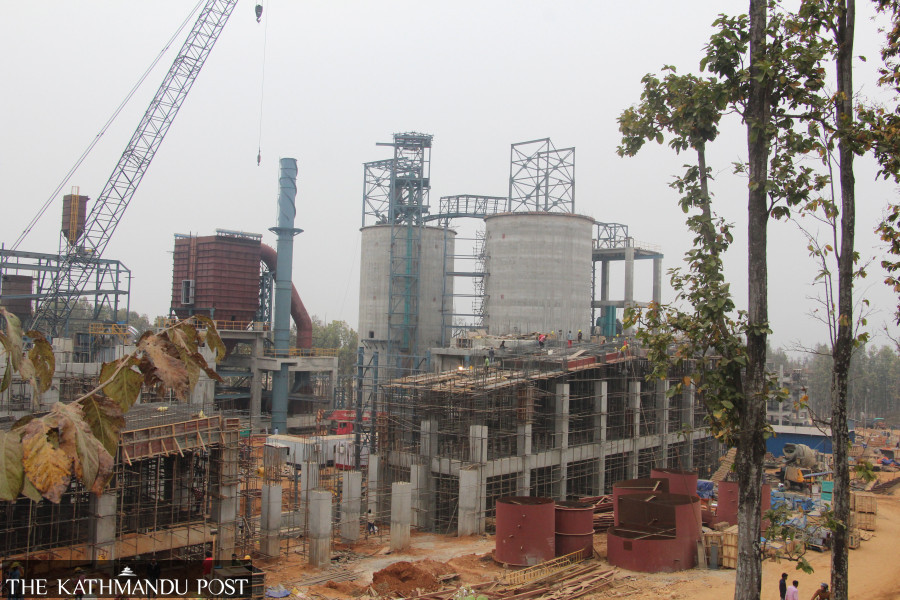Money
Government approves 10 foreign investment proposals through automatic route
Department of Industry has received 26 proposals through the liberalised entry route since it was launched a week ago.
Krishana Prasain
The Department of Industry has approved 10 foreign investment proposals since implementing the automatic route, a liberalised entry route for investors, a week ago.
The department had received a total of 26 foreign investment proposals.
Shankar Singh Dhami, director at the Foreign Investment and Technology Transfer Section at the department, said the remaining 16 foreign investors have logged on to the system but have not yet completed the document submission process.
The automatic route allows foreign investors in Nepal to invest in sectors without requiring prior approval from other government authorities. It was launched during the third edition of the Nepal Investment Summit held on April 28-29.
“We have so far approved investment commitments totalling Rs9.13 billion made during the summit,” Dhami said.
Multilateral funding agencies have said that attracting and retaining foreign direct investment (FDI) will be crucial for Nepal’s future growth.
According to the World Bank, at less than 1 percent of the GDP, Nepal’s current levels of FDI are the lowest among similar countries.
This is due to restrictive FDI policies. Reports say that employers face a lengthy process to hire foreign workers, and it remains difficult to repatriate profits.
Nepal has prioritised several promising export sectors including cardamom, ginger, tea, medicinal and aromatic plants, fabrics, textiles, leather, footwear, pashmina, carpets, tourism, professional services, and IT engineering.
Restrictive FDI policies and policies that make it difficult for exporters to access inputs from abroad negatively impact each of these sectors in a variety of ways, according to reports.
A notice issued by the department on May 2 says foreign investors can apply by visiting www.imis.doind.gov.np and submit the required documents as asked in the system.
The website, however, did not open when Post made multiple attempts on Tuesday.
Once the application is submitted, the investor receives an approval notification via email along with the application number, which they can use to register the company.
The department said that foreign investors with investment pledges of up to Rs500 million, fully owned or joint investment, can use the automated route.
Dhami said that they have set the Rs500 million upper limit for the businesses because foreign investments exceeding more than Rs500 million come under the large-scale ventures category which require approval from different government bodies.
This will ease the application process of foreign investment and encourage the investors to invest, he said. “The ceiling of foreign investment through the automatic route does not apply to the IT sector.”
The automated route saves time for investors, Dhami said.
Under the old rules, it would take seven days to approve a foreign investment proposal.
Dhami said if the company registration process is also made online, following the approval of foreign investment proposals, it would significantly save time.
On October 2, 2023, amending the provision in the Foreign Investment and Technology Transfer Act, 2019, the Ministry of Industry, Commerce and Supplies set the investment threshold and the areas of investment for foreigners through an automatic route.
The automated route allows foreign investors to invest in the energy sector, including wind, solar, biomass or producing energy through other sources or manufacturing machines and equipment that helps produce such energy. It also includes energy production from sugar factories.
Under the agriculture and forestry-based sector, foreign investors can invest in fruits and vegetable processing, setting up and operating greenhouses, silk, tea and coffee, herbs and rubber processing, including cold storage facilities for fruits and vegetables.
It has also allowed foreigners for natural fibre processing, paper, rosin and others based in non-wood forest-based, tissue culture and cotton processing.
Similarly, under the infrastructure sector, foreign investors can invest in vehicle parking, setting up processing hubs for exported goods, water treatment plants, construction of film city or film studio and warehouse construction and operation.
Likewise, in the tourism sector, foreign investors can apply for setting up motels, hotels, resorts, bars and restaurants, entertainment parks, water parks and sports tourism.
In the information technology sector, foreign investors can invest in technology parks, IT parks, biotech parks, software development, statistical processing, digital mapping, business process outsourcing, knowledge processing outsourcing, data centres, data mining, cloud computing, web portals, and web designing.
Under the service sector, foreign investors, through automated routes, can apply for workshops, construction, hospital, sports and swimming pool service, garbage collection and management and sanitation and its processing, veterinary, health labs and international courier service.
Under the manufacturing sector, they can apply for feed production for livestock, processing and packaging of livestock, oil and fat production from basic raw material, starch and glucose production, confectionery and biscuit production, sugar production, beverage production (non-alcoholic), textile, garment and clothes manufacturing and re-use manufacturing.
Investors can apply for the production of consumer goods electronics, production of goods using plastic and rubber, production of bags, furniture, toothpaste soap, shampoo, and glass products, manufacturing of cycles, scooters, motorcycles vehicles and equipment through the automated route.




 14.12°C Kathmandu
14.12°C Kathmandu













